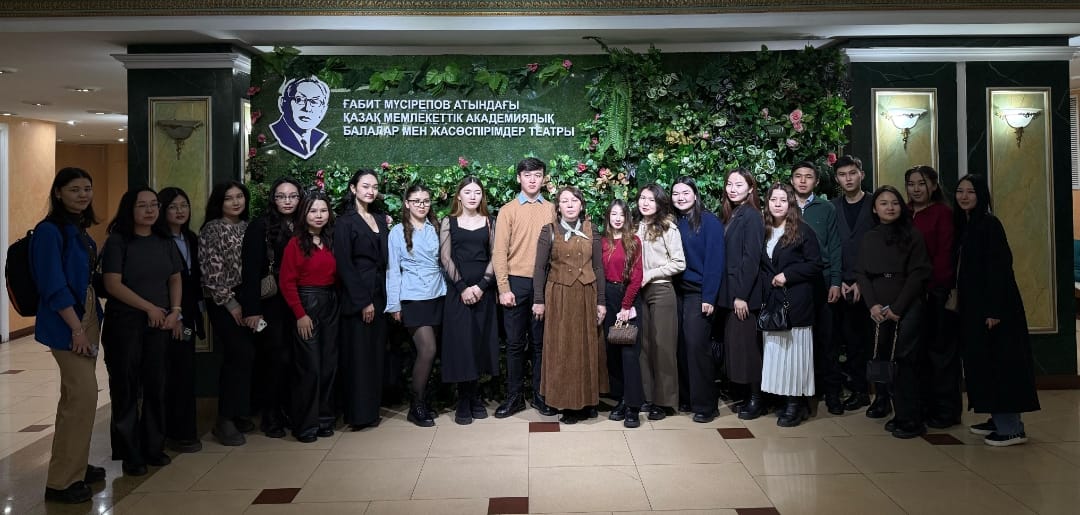SDG-4: Students Watched the Performance "The Uprising of the Brides"

At the Gabit Musrepov State Academic Theater for Children and Youth, students from the Faculty of Medicine and Healthcare watched the stage performance "The Uprising of the Brides." The play "The Uprising of the Brides" by the prominent Uzbek writer and playwright Said Ahmad, written thirty years ago, is still one of the successful and popular works that continues to be staged. It is known that the play has been performed in 14 countries, with thousands of productions and several films made based on its plot.
Farmon Bibi, who raised seven sons, nurtured forty-one grandchildren, and sent off six brides, is a strict, severe, and tough woman. She firmly adheres to tradition, and no one dares to disobey her; no one can go against her words. All actions in the family are carried out solely under her direct control.
One day, Farmon Bibi marries off her youngest son and brings a new daughter-in-law into the house. With the arrival of the new bride, changes begin to take place. The spoiled and free-spirited bride Nigora, raised by her parents without restrictions, does not follow the long-standing family laws. The day after stepping over the threshold, she begins doing rhythmic gymnastics and openly protests against the household order. The young bride’s actions disturb the peace of Farmon Bibi, and her brothers and sisters-in-law begin to ask, "How and where are we living?!" Taking advantage of the absence of her mother-in-law, the younger daughter-in-law, with the help of her sisters-in-law and brothers-in-law, prepares a small performance titled "General Mother-in-Law." Realizing that her own image is being portrayed, Farmon Bibi admits her mistakes and gives her permission for her sons to live separately while keeping the house in traditional ways.
"The Uprising of the Brides" is not just about the relationship between the mother-in-law and daughter-in-law, but also addresses broader societal issues such as human freedom, choice, actions, and rights. The performance features the national dances and music of the Uzbek people, highlighting their strong traditions. The comedy, filled with subtle humor, entertains the audience while also provoking deep reflection. At the end of the evening, students, as is tradition, took a commemorative photo.
Other news



